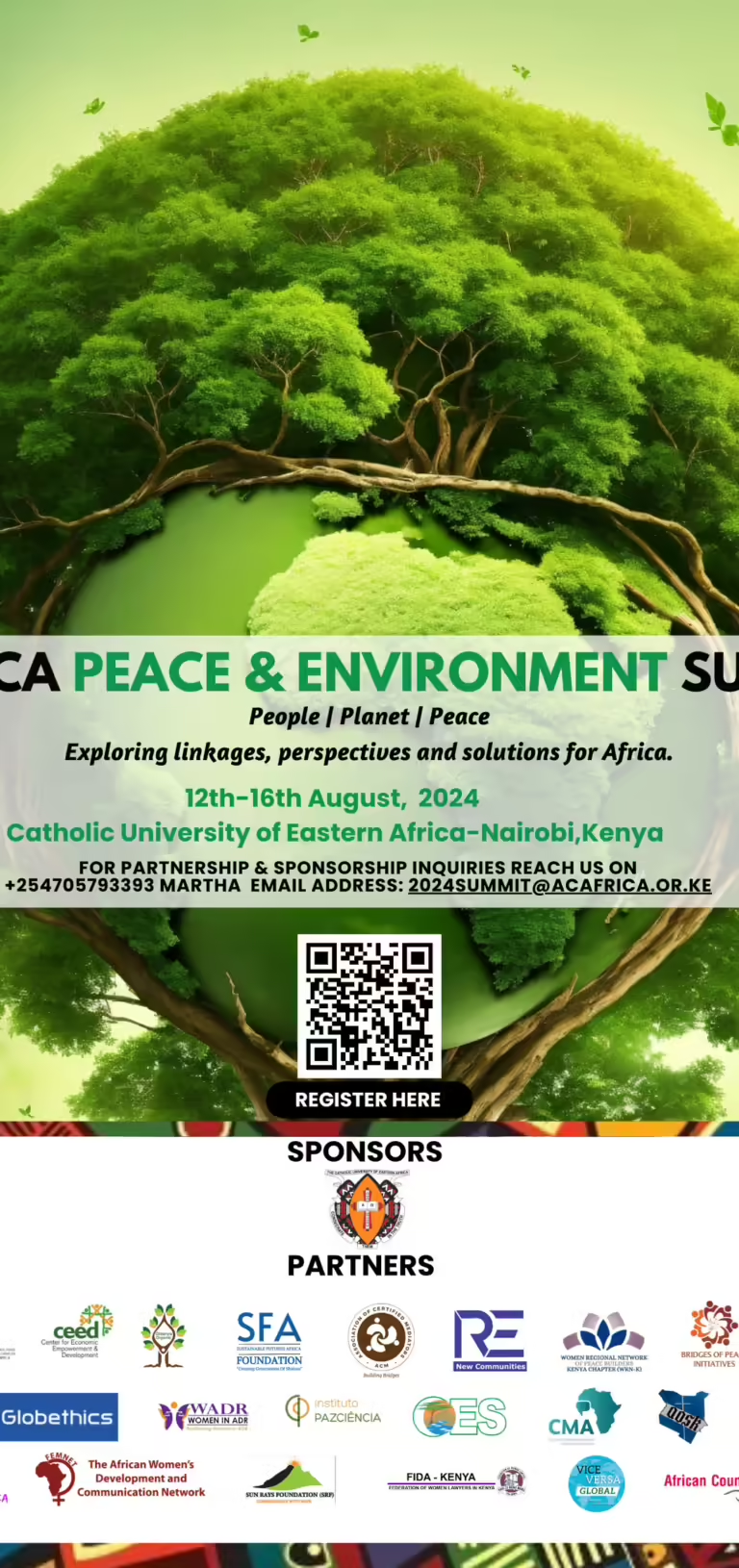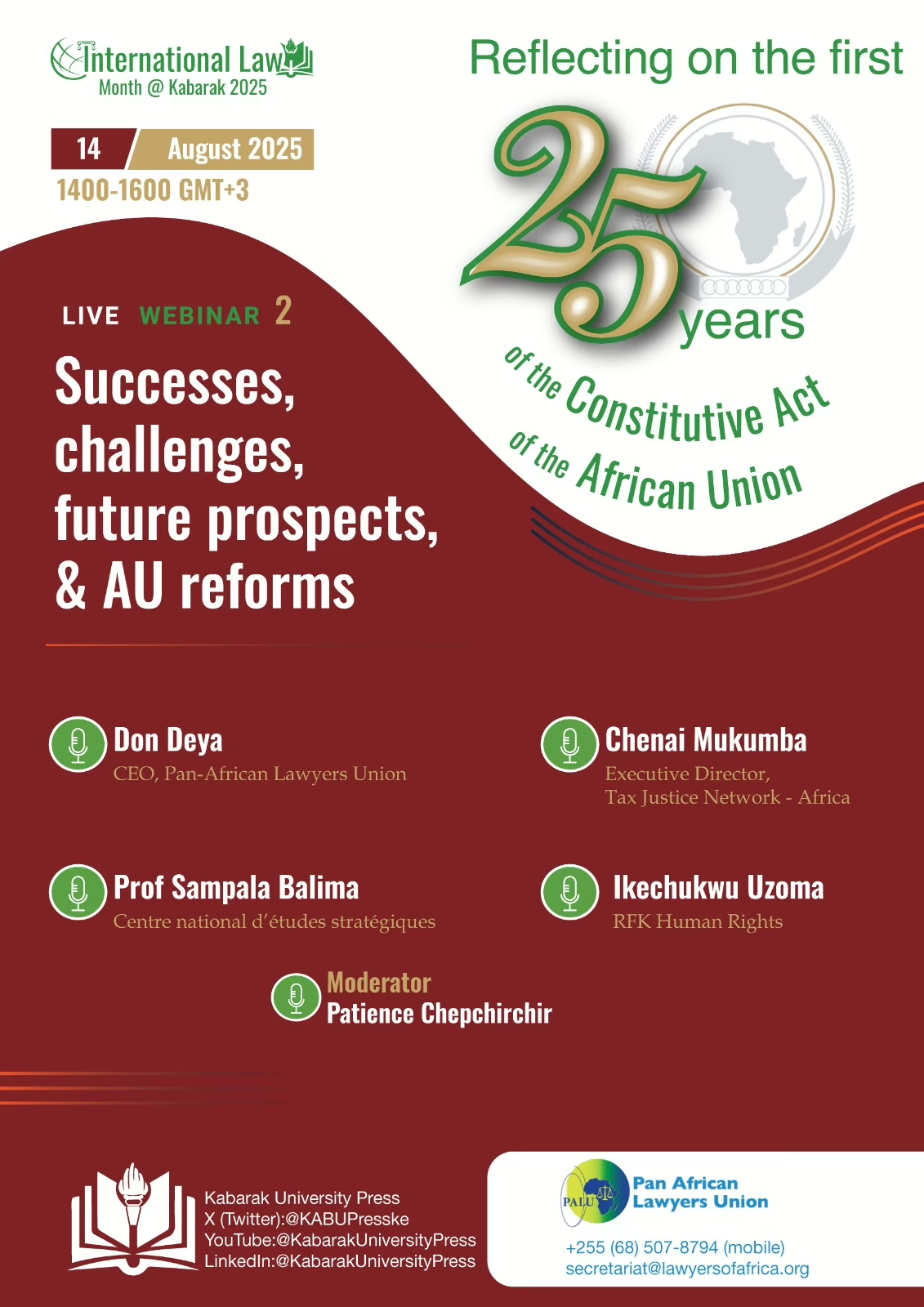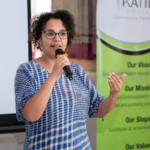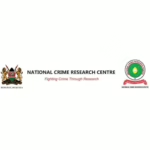Peace and the environment are inextricably linked. Amid the prevailing security and environmental challenges, it is crucial that stakeholders dedicated to peace and environmental causes at the local, regional, and global levels engage in a community-led conversation that promotes a greener, more peaceful and sustainable Africa. The Africa Peace and Environment Summit aims to provide a platform for dialogue, collaboration, and action to promote peace and environmental sustainability across the African continent.
Objectives of the summit
- Explore linkages between peace and environment
- Share experiences, challenges, perspectives, best practices and solutions
- Nurture a collaborative action to build a greener and more peaceful Africa.
Intended Outcomes:
- Clarified understanding of nexus between peace and environment.
- Enhanced collaboration between peace and environment professionals and practitioners.
- Call to Action Communique.
Background
Communities throughout Africa are a testament to innovation, resilience and hope working towards the realisation of the Africa Agenda 2063 vision of An integrated, prosperous, and peaceful Africa, driven by its citizens and representing a dynamic force in the global arena. At the same time, communities across the continent are grappling with the complex interplay between peace and the environment, as competition over resource sharing, environmental stressors, and social tensions heighten the existing challenges.
As highlighted in the Intergovernmental Panel on Climate Change (IPCC) 2023 Summary for Policymakers, human-caused climate change is already affecting many, with weather and climate extremes in every region across the globe leading to widespread impacts and related losses and damages to nature and people. Africa is one of the lowest contributors to climate change yet it is experiencing severe and widespread impacts attributable to human-induced climate change, including biodiversity loss, water shortages, reduced food production, loss of lives and reduced economic growth.
As environmental degradation accelerates, the availability of essential resources that sustain lives and livelihoods diminishes, propelling communities into competition for the remaining resources. This heightened competition breeds political instability, social unrest and violent conflict leading to deteriorating peace.
The IPCC AR6 Report estimates that Africa incurred annual losses of $7 billion due to climate change between 2010 and 2019. This figure could rise to $50 billion by 2040, with the increasing proportion of global warming at 2°C and 3°C exacerbating already existing multi-dimensional socioeconomic, political, and environmental vulnerabilities. Additionally, the rate of population increase in Africa further strains limited resources, heightening the urgency for adaptation and mitigation strategies to safeguard livelihoods, ecosystems, and future generations.
Recognising the interconnectedness between peace and environment, communities across the African continent are engaged in peacebuilding and environmental sustainability efforts drawing on traditional knowledge, local resources and indigenous practices to build a sustainable future. It is therefore important to foster meaningful dialogue to identify context-specific solutions that resonate with the local realities. Through collaboration and collective action amongst the peacebuilders, environmentalists and other stakeholders we can develop an integrated approach to peace and environmental sustainability.
Areas of Focus
- Linking peace & environmental sustainability to Africa Development Goals
and Governance - Perspectives on the impact of Natural Resource Management models on Peace & Environmental sustainability
- Impacts of Climate Change in Africa on Peace and Environmental sustainability
- Mobilizing capacities of actors for action in peace and environmental sustainability.
Target Audience
The summit aims to unite over 500 delegates from local communities across Africa, joined
by other stakeholders including:
- Civil society
- Academia
- Practitioners
- Interfaith groups
- Media
- Creative arts
- Governments
- Intergovernmental agencies
- Corporates
We are keen on having youth, women, persons with disabilities, children and indigenous groups actively and meaningfully participate in the summit. This diverse gathering will facilitate cross-sectoral collaboration and knowledge exchange to advance peace and environmental sustainability across the continent and beyond.
Summit Format
Day 1 (12th August 2024) : APES Youth Day
The youth in Africa are a great resource, they comprise over 70% of the population. They are pivotal in driving social and environmental transformation and their meaningful participation in such discussions is essential. The APES Youth Day will offer a platform for young people to share innovative ideas, discuss challenges, and co-create solutions for building a climate-resilient, peaceful and sustainable future.
Day 2 (13th August 2024) : APES Women’s Day
Women often face higher risks and greater burdens from the impacts of climate change due to existing inequalities. This directly affects their peace at personal and community level. In spite of their vulnerability, women are active and effective agents and promoters of adaptation and mitigation to enhance local adaptive capacity and sustain a community’s livelihood. They bring invaluable resources, including their
expertise, wisdom, leadership and community networks. The APES Women’s day will provide the platform to discuss the challenges that women face as well bring to life their potential to lead transformational change and inspire collective action towards a greener and more peaceful continent.
Day 3 (14th August 2024): Explore linkages between peace and environment
Day 3 will focus on linking peace and environmental sustainability to Africa Development Goals and Governance. This will be achieved through case studies from 5 different countries , paper presentations, panel discussions and plenary discussions.
Day 4 (15th August 2024): Share experiences, challenges, perspectives, best practices and solutions
Day 4 will focus on the exchange of experiences and knowledge among the stakeholders. Representatives from various sectors, including faith-based, civil society, academia, private sector, local communities and indigenous groups will share their perspectives on the linkage between peace and environment in their different contexts. By sharing diverse experiences, challenges, and best practices, delegates will develop a collective understanding of effective strategies that will foster a resilient, peaceful and sustainable future. This will be achieved through panel discussions, storytelling, paper presentations and group discussions.
Day 5 (16th August 2024) : Solutions and the Way Forward; Nurture a collaborative action to build a greener and more peaceful Africa
Day 5 will focus on synthesizing insights and recommendations from the previous days into concrete solutions and actionable plans. The session will culminate in a commitment to ongoing cooperation and support, ensuring the momentum generated by the summit leads to sustained efforts in building a greener and more peaceful Africa. A final declaration, serving as a Call to Action, will be drafted, outlining key commitments and next steps agreed upon by all stakeholders. The day will culminate with cultural extravaganza.
Join the Africa Peace and Environment Summit by registering on the link below
https://www.acafrica.or.ke/sign-up










